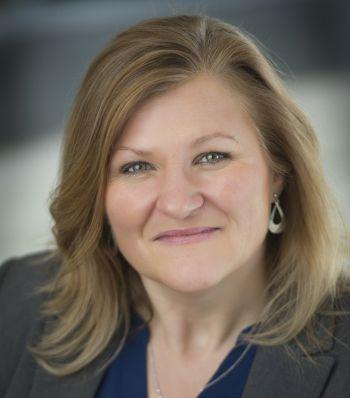
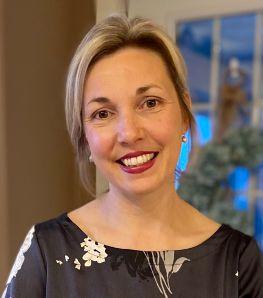
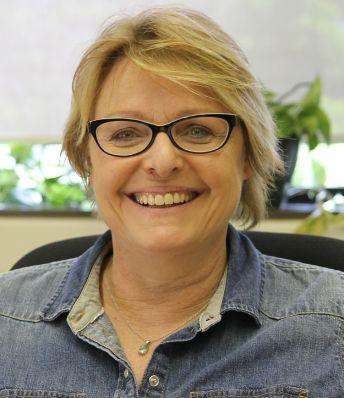
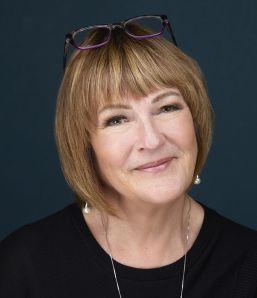
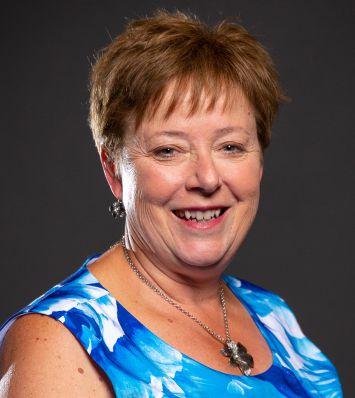
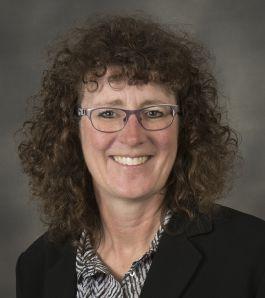
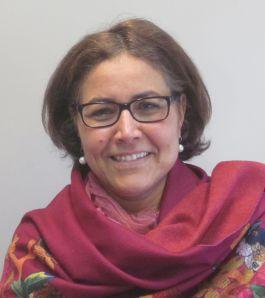























Bayer is honoured to support Influential Women in Canadian Agriculture. We’ve always believed in the power of diversity and the drive to create a better world for all. By embracing the unique perspectives of women and supporting their invaluable contributions to agriculture, we push our industry forward, helping to shape a more vital, creative and inclusive future everyone can feel proud to be a part of.





Influential Women in Canadian Agriculture (IWCA) is a recognition program designed to honour, highlight and celebrate the work women are doing across Canada’s agriculture industry.
Following a successful launch in 2020, readers once again nominated Canadian women working in all aspects of agriculture.
The seven women chosen as our 2021 honourees include: Andrea McKenna, a farmer and manager with the East Prince Agri-Environment Association in P.E.I.; Leona Staples, president of The Jungle Farm Ltd. in Alberta; Tina Widowski, a University of Guelph professor and the Egg Farmers of Canada Research Chair from Ontario; Noura Ziadi, a research scientist with the AAFC-Quebec Research and Development Centre in Quebec; Crystal Mackay, the founder and CEO of Loft32 and Utensil from Ontario; Simone Demers Collins, a professional home economist with SDC Consulting in Alberta; and Ellen Sparry, general manager of C&M Seeds in Ontario.
These leaders have already shared their stories, wisdom and insights in the IWCA podcast series on AgAnnex Talks, a podcast channel presented by Top Crop Manager, Potatoes in Canada, Canadian Poultry, Fruit & Vegetable, Drainage Contractor and Manure Manager magazines. Now, we’ve included highlights from those inspiring conversations in this digital publication.
What’s more, this year’s IWCA program will once again culminate with a virtual event in the fall that brings together women from across agriculture to share in their experiences, offer guidance and advice in an interactive setting. The second annual IWCA Summit will take place on Oct. 19. Register today for this virtual mentorship event with some of the most influential leaders in Canadian agriculture at agwomen.ca.
The team behind IWCA wishes to extend a sincere thank you to our audiences for participating in the program and to our sponsors for their support. Enjoy these leaders’ inspiring stories in the pages ahead!
Please note that Ziadi’s interview wasn’t conducted in time for this publication but will be available soon on agwomen.ca.



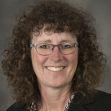


10 5 4 6
Crystal Mackay Loft32
Simone Demers-Collins
SDC Consulting
Ellen Sparry C&M Seeds
8
Leona Staples The Jungle Farm Ltd.
Andrea McKenna East Prince Agri-Environment Association
12
Tina Widowski University of Guelph
Q&A with Crystal Mackay
To hear the full interview with Crystal, visit agwomen.ca
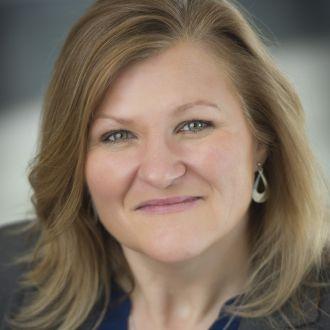
Crystal Mackay connects producers, consumers and the greater ag industry.
By Stefanie Croley
Crystal Mackay is a communications guru with a long-spanning career in agriculture, beginning with the Ontario Farm Animal Council before founding Farm and Food Care and the Canadian Centre for Food Integrity. Mackay, together with Maggie Van Camp, launched Loft32 in 2019 as a means of creating more connections between producers, consumers and the greater ag industry. Stefanie Croley, editorial director, agriculture, spoke with Mackay about conquering critics, taking risks and why collaboration will be more necessary than ever in the future.
What’s your background in agriculture and how did you get into your current role?
My whole career can be summed up as working to bridge the gap between farmers and consumers. From a young age, I started doing producer to consumer education and that’s where my passion has always been. I got my roots in communications with real people, having real conversations at the Ontario Farm Animal Council.
At Ontario Pork, I created a new role that mixed producer and consumer relations. It really fostered what I love to do – working with farmers and helping them become better communicators, which I still do today, and bridging the gap to the consumers. I went back to the Ontario Farm Animal Council as the executive director, and in a leadership capacity there formed the roots of the Farm and Food Care movement.
The next level was to take that nationally, to help create the Farm and Food Care model in other provinces, and I was the founding CEO of the Canadian Centre for Food Integrity before I stepped down in 2019 to create Loft32.
What made you jump into starting Loft32?
Loft32 is a new business model. It’s really a talent stable of good people, with a focus on things in common, such as love for agriculture and food. I spent a lot of time thinking about the future and my time, and my co-founder Maggie Van Camp and I approached it as a problem-solving exercise. What are the problems in agriculture that we could help solve? What are our skill sets? And
quite frankly, what do I have fun doing? Having fun has always been a really important part of all of my jobs. I’ve dealt with some tough issues but I’ve always surrounded myself with good people and managed to take my job seriously without taking myself too seriously.
“My whole career can be summed up as working to bridge the gap between farmers and consumers.”
Can you share a challenge you’ve experienced that really sticks out in your mind?
In the early days of my career, I spent a lot of time dealing with critics – activist groups who oppose farming specifically – and really developed a lot of subject-matter knowledge around that area. It’s a serious issue, and it subsides and raises its head again, depending on the day and the issue and the groups. There will always be critics of our industry. We’re feeding everybody, whether it’s with tofu or chicken – everybody has to eat. There’s always a need to defend and protect, but that’s not my purpose. I’m mature enough to agree to disagree and say, “Can I help you make a more informed decision?”
What keeps you excited about your role in agriculture and just about agriculture in general?
Good people that like to have fun are my particular kind of people – that includes my colleagues and those I work with on projects. Within the industry itself, feeding people is amazing. Sometimes in agriculture, we forget that we’re in the business of feeding people, regardless of what your role is. I also feel the industry is very humble – we do a really great job of feeding people, but we do a lousy job of talking about it, and we’re getting better. And that excites me. •
To hear the full interview with Simone, visit agwomen.ca
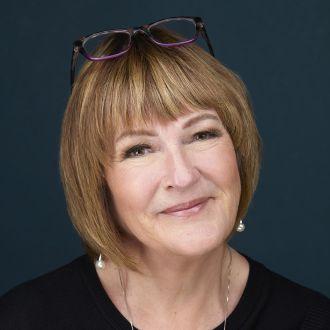
Professional home economist Simone Demers-Collins does a bit of everything.
By Bree Rody
While working as an extension educator for Alberta Agriculture, Simone Demers-Collins would do her laundry weekly at a local laundromat – and found herself answering questions about everything from gardening and recipes to stain removal. Before she knew it, she had a reputation – not only as a helpful presence, but also as someone who could fashion something outstanding out of very few resources. Now an independent consultant and professional home economist, she does a little bit of everything, from advocacy and education to food tours and events. Editor Bree Rody speaks with Demers-Collins about her history of thinking outside the box and how she stays in touch with the community.
Tell us about your background and roles in agriculture.
Currently, I’m a member of the Edmonton Food Council as well as the University [of Alberta] Alumni Association. Up until COVID, I was a food tour guide with the Edmonton Food Council doing food tours, but this has been put on hold. Food tours were natural for me. This is a way for me to connect my experience with community needs.
That’s what I think my strength is. For example, I participated in a lunchtime webinar on a program called Veg Instead. It’s kind of a modern version of the victory gardens that were done during the war, but is a way of reconnecting people to their land as well as connecting them to growing vegetables and awareness of agriculture. It allows me to talk to people about some of the science and misconceptions.
I had a question about GMO seeds, and I had to go back and say, “I’m sorry, we don’t have GMO seeds that are available to consumers. These are the ones that have been approved in Canada,” and they said, “We didn’t know that.” My background in ag comes out in very different ways – talking about GMOs; talking about noxious weeds. Those are items that might be new to urban consumers.
I really like the flexibility, the options [and] the ability to always tie ideas back to agriculture. I have a creative streak that allows me to see a project as a whole, but I can also be really anal in a way that allows me to see the minutae of what makes the difference between a good and great project.
When I worked on the display with the Ag and Food Museum in Ottawa – this all started as a tour. And as I was listening to people giving this particular tour, I thought, “There’s not a lot of information about Western Canadian agriculture.”
The more we discussed, we realized that canola was a story that needed to be told. When we introduced the concept of canola as being the only “made in Canada” crop, it became really important for us to get this done in time for [Canada 150] and the 50th anniversary of the Canola Council of Canada.
What is the biggest risk you’ve taken?
I started my career working in government as an extension worker within Alberta agriculture. I had the opportunity of becoming a manager, and I realized that’s not where my heart was at. So, I had to say no despite the fact that it meant my salary would not be at a managerial level. I had to go with the programs and the work that was more creative.
Can you share a particular challenge that you might have faced and what you’ve learned from it?
I started my career in an area of the province that had a huge turnover of staff. People came and went quickly. I rented a basement apartment suite close to the office that had no laundry facilities. On Monday nights, I’d find myself at the laundromat. And I started having conversations with people. I noticed people would start coming to the laundromat [when I was there] with their home ec questions that they had for me. I was working more at the laundromat than I was on my office phone. It was that whole idea of listening to people where they were comfortable and working from that particular perspective.
That served me well a few years later when I was an event coordinator with the Alberta Horticultural Congress. We had snow in August. Anything that wasn’t below ground froze. People had nothing left to sell except their root vegetables.
We decided that if people chose to come to Congress that year, it was going to be the best three-day holiday they could possibly have. We had close to 800 people register. They drove in, attended all the sessions, ate the food, drank a few beers, and for many that was the only holiday they had that year. It was a very powerful experience. •
Q&A with Ellen Sparry
To hear the full interview with Ellen, visit agwomen.ca
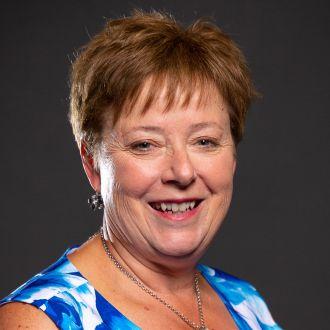
Ellen Sparry is dedicated to finding common solutions to ag problems.
By Alex Barnard
Ellen Sparry is a go-to person for cereals research and production questions in Ontario as general manager of C&M Seeds in Palmerston, Ont., as well as wheat registration and performance test co-ordinator for the Ontario Cereal Crops Committee and chair of the newly formed Seeds Canada. Alex Barnard, associate editor of Top Crop Manager, Fruit & Vegetable and Potatoes in Canada, chatted with Sparry about good advice, the joy of watching things grow and the importance of conversation for the future of agriculture.
What made you decide to stick with agriculture?
I’m a farm girl, so I’ve probably been in ag almost since the day I was born. When I was deciding on a career path, I did actually start in a different direction – in hotel and food management, believe it or not, going to college. That lasted a couple of weeks – I knew it wasn’t for me.
I went back home, heard an ad for the University of Guelph and realized that that was where my heart wanted to go. So, into ag I went – studied ag; fortunate enough to get a job in agriculture. I’ve really only worked for two companies in my entire career – both family run businesses – and that’s the path I’ve taken. I’m just happy where I am.
What do you like best about your newer role as general manager of C&M Seeds?
Really, it’s an extension of my career and I would say that that’s working with people. I have always, right from the start, worked with summer students and staff and at various levels of responsibility. But what I like best is watching things grow. So, whether it’s plants or people, that really has been what I’ve enjoyed most about all my roles.
What’s the best piece of advice you’ve received?
I’ve received a lot of advice from people who probably didn’t realize they were giving it to me. One of those was a quote from a colleague, years ago in a paper, and what he said was, “Hire people who are smarter than you are and empower them.” It was fairly early in
my career that I read that and it really stuck. So, that’s one big one. I like quotes. So, in The Martian, Matt Damon’s character says, “Just keep working the problem.” So, now that’s another thing I say.
For advice for others? Challenge the status quo. Always evaluate what’s going on and think of where improvements can be made and how you might contribute to that.
For folks that are looking for a career in ag: do it. There are so many opportunities and it’s a wonderful industry to be a part of. You’ll find lots of people who are willing to help you out and help you advance your career.
You don’t have to go through an ag college to participate, either. There are a lot of individuals [from non-ag universities] that’ve been hired as summer students [at C&M Seeds] for field work where we’re doing disease-testing. [There are] definitely lots of opportunities, so yes: do it.
“We all have a part to play in making sure we’re doing all we can to ensure food security for Canadians and globally.”
What would you like to see more of in the coming years?
I would like to see more conversation between all sectors of the ag industry. We do a pretty good job of that, but I think we can do better. So, whether you’re a single producer or grower, you’re running a family business, or a multinational company, we all have a part to play in making sure we’re doing all we can to ensure food security for Canadians and globally.
To make progress, I think that can only happen through more conversation and more understanding of each other’s roles.
We all have to work together to find our way to that common solution and what we’re all looking for. So, [I’d like to see] more dialogue. •

Q&A with Leona Staples
To hear the full interview with Leona, visit agwomen.ca

Leona Staples is passionate about sharing the story of agriculture.
By Stefanie Croley
Leona Staples, president of The Jungle Farm in Red Deer, Alta., is passionate about sharing the story of agriculture with everyone she meets. Before the COVID-19 pandemic, Staples, along with her husband and three sons, would host more than 5,000 students through educational experiences, offering them unforgettable knowledge about how food is produced. Stefanie Croley, editorial director, agriculture, chatted with Staples in this interview about the importance of creating connections between producers and consumers and the struggle to balance motherhood and career, while still fulfilling your dreams.
Tell us about your background and current role in agriculture.
I grew up on The Jungle Farm. I’m the fourth generation and our boys are the fifth generation, living on our farm and in the same house. I was always passionate about agriculture and really believed in the production of food and the people who do that.
When I was young, I had the wonderful opportunity of meeting an incredible young district home economist who worked for Alberta Agriculture’s extension and was very involved in our 4-H program. I knew, at 13 years old, that’s what I wanted to do.
I got my Bachelor of Science with a major in home economics and became a district home economist, working in multiple communities around Alberta. Eventually, my parents were looking to retire, so we came back to my family farm.
“What gets me up every morning is the opportunity to educate and to share our farm. People want to connect.”
How has The Jungle Farm evolved?
My parents had a mixed-grain cattle operation. When we came back, we were asked to join in a small growers’ group of five farms, each growing different things that would be co-operatively marketed throughout central Alberta. We were asked to grow strawberries. During our first year, people showed up on our doorstep looking to pick strawberries. We did all the wrong things to start a U-pick operation and it made us change what we were doing.
our people eggfarmers.ca
Egg Farmers of Canada is proud to inspire the next generation of agricultural leaders. Through our young farmer program and women in the egg industry program, we provide continuous education and mentorship.
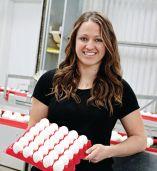
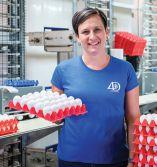
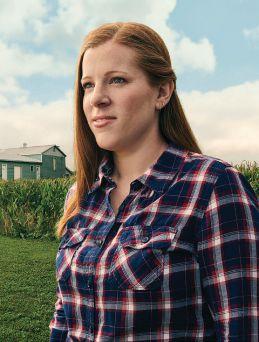
We now have a farm store and direct marketing of fruits and vegetables where people can come and pick their own. We have a commercial kitchen where we can do value-added products. We have families come to visit us from April to October. And what gets me up every morning is the opportunity to educate and to share our farm. People want to connect and understand agriculture.
What has been a challenge for you throughout your career?
My kids recently said, “We often wondered how you balanced work and being a mom. Wasn’t that challenging?” I really do think this is a women’s issue – we want to contribute to the family, whether that’s working [at or outside the home] or being a stayat-home mom.
We want to raise our children to be good working citizens in our society. But we also have career aspirations and education that we want to utilize.
How do we balance that? When our children were young, I had them in the strawberry patch with me. Because as we were starting out, we physically did a ton of the work ourselves. I’m so blessed to have had my mom, who’s one of my strongest role models, be on the farm with us at that time.
Can you share a defining moment?
A defining moment, truly, that set me on the trajectory of where I am today was being that 13-year-old with wide eyes watching the district home economist. I knew what I wanted to do and then moved forward. I worked with the most amazing women. They were strong, independent, showed incredible leadership and were passionate about agriculture.
How do you see the industry changing in the future?
I think that the world of wanting to connect to food has grown. Canada is one of the world’s food baskets. Aren’t we fortunate? My hope is that we continue to expand our value-added products. We’re incredible growers of grains and meats, but the more we can add value to it, the more dollars that are going to stay in our country for our people to be employed. I don’t expect to see any decrease in the demand for locally grown fruits and vegetables. And I would love to see a focus in curriculum on showing students more about agriculture. •
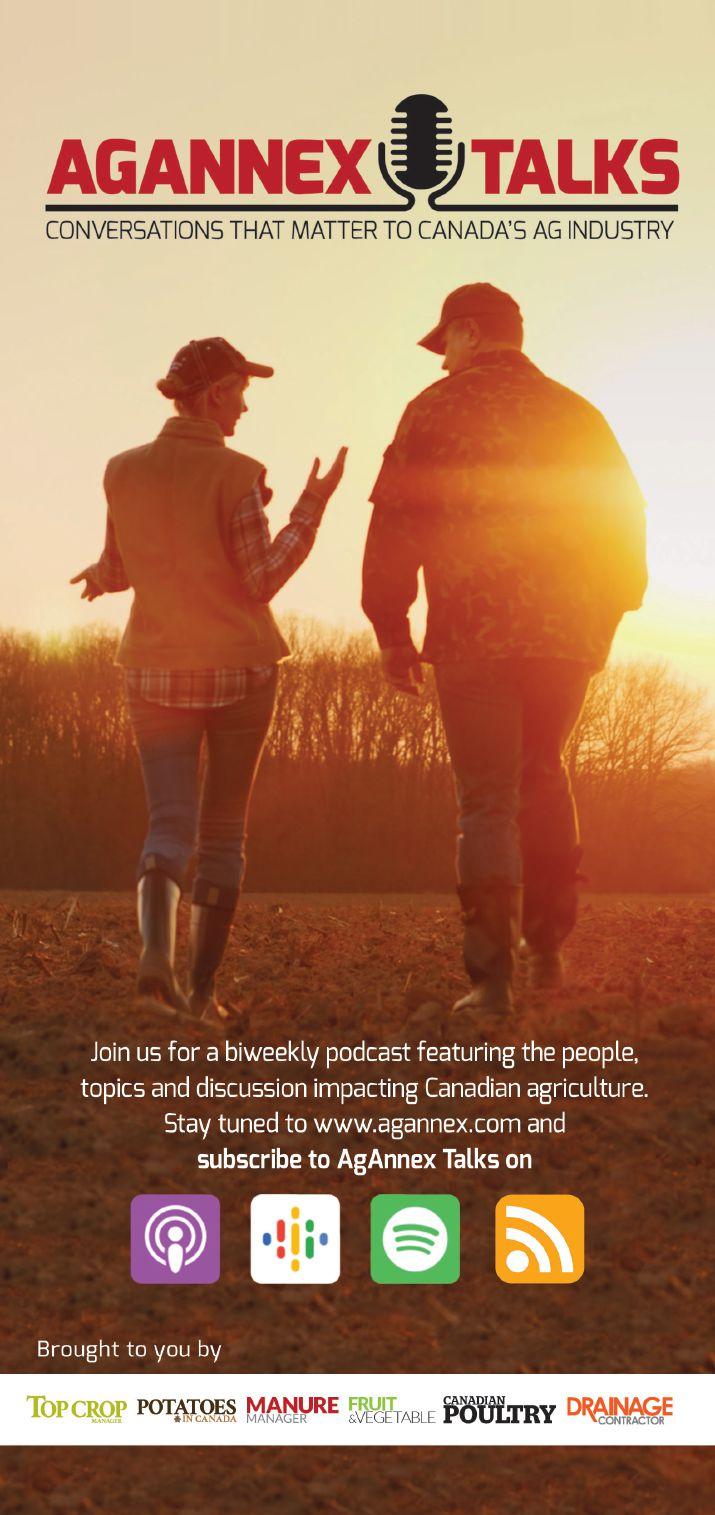
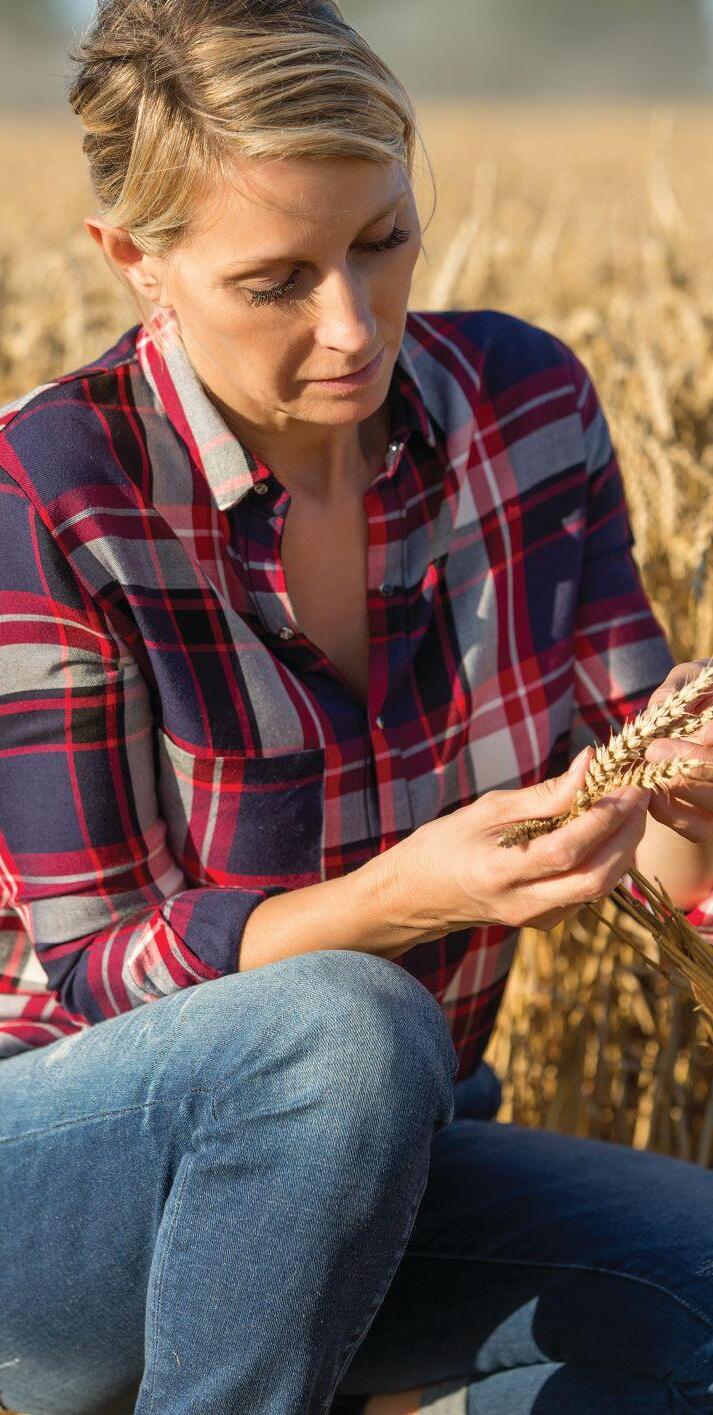
OCT. 19, 2021 12:00PM EDT
Register for a virtual mentorship event with some of the most influential leaders in Canadian agriculture.
This half-day virtual event will showcase select honourees and nominees of the IWCA program in a virtual mentorship format. Through roundtable-style sessions, panelists will share dvice and real-life experiences on leadership, communication and balance working in agriculture.


PLATINUM SPONSOR GOLD SPONSOR BRONZE SPONSORS


Q&A with Tina Widowski
To hear the full interview with Tina, visit agwomen.ca
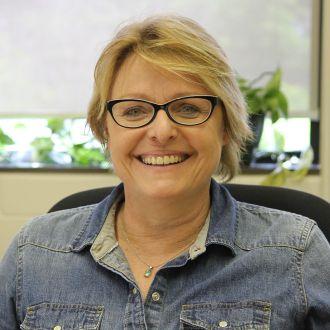
Tina Widowski has dedicated her career to improving farm animal welfare.
By Brett Ruffell
Tina M. Widowski has spent more than 25 years investigating the factors that affect the well-being of poultry and livestock. Collaborating with academic leaders, her extensive research and authorship has included findings on growth, efficiency and mortality in broiler chickens, as well as alternative housing systems for laying hens. Canadian Poultry magazine editor Brett Ruffell chats with Widowski about her career, her inspirations and her thoughts on the evolving role of women in agriculture.
Can you tell us a little bit about your career, your current role and how you got there?
Yes, I am currently a professor in applied animal behaviour and animal welfare in the Department of Animal Biosciences at the University of Guelph. I have recently stepped down from a 12-year term as the director for the Campbell Center for the Study of Animal Welfare. And I currently now hold the Egg Farmers of Canada Research Chair in Poultry Welfare.
And it has been quite a journey to get here. Growing up in Chicago, I knew nothing of animal agriculture. I was, however, very interested in animals. I went to the zoo. Had pets. And I was destined for a career either as a zookeeper or, like many other students that I teach, a veterinarian.
And so, I applied for vet school when I was at university. I’d had many years of experience in a small animal clinic. And I was interviewed but did not get accepted the first time and they told me that I should try and get some livestock experience to improve my experience with animals in general.
So, I had taken one or two animal science courses in the agriculture program at the University of Illinois. And I went to one of my professors and asked him to hire me to be a summer student to gain experience in his lab, which was mostly pigs. He hired me and I never left that lab and never looked back. And that’s what’s really launched a research career with agricultural animals.
What is your proudest achievement or a defining moment of your career?
It’s a bunch of moments. I think it’s my students. Training graduate students. Watching them grow. Seeing the light bulb go on when they figure out what they’re actually doing for their thesis. And then seeing them go
on to careers afterward. I’m really, really proud of my students. They’re your legacy that goes on and they’re the ones that can get out there and change the world as well after you’re done.
“Probably the first challenge would be developing confidence to enter a world where I didn’t have a background.”
Could you talk about a particular challenge you faced in your career and how you persevered?
Probably the first challenge would be developing confidence to enter a world where I didn’t have a background. And so, part of overcoming that is interacting with people in the industry.
Another challenge, I think, is just the whole balancing of career and family. You just need to realize and come to terms with the fact that the decisions that you make, as a partnership or as a family, may not be the same decisions that you make if you were just on your own in terms of jobs you would take or things that you would do. But that’s okay.
Looking forward, what are the main goals you want to achieve in the next few years?
I want to continue to work with egg farmers. They’re currently transitioning from conventional cages to alternative housing systems (cagefree or “enriched” cages). So, with the code of practice and with their voluntary decision, they’re committed to a huge change for the next 20 years.
And so housing systems will be evolving over time, or new adopters and young farmers will be taking over and changing those systems. So, I want to do research that helps fine tune that. There’re challenges with those systems for the welfare of the animals as well.
So, I want to find solutions to some of those challenges that help the farmers and birds adapt. •
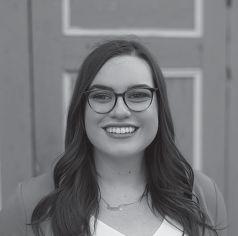

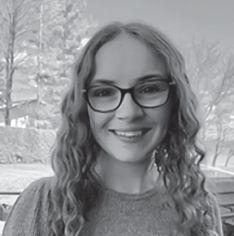
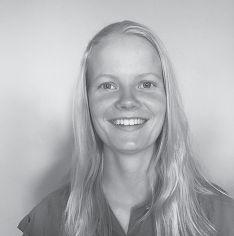


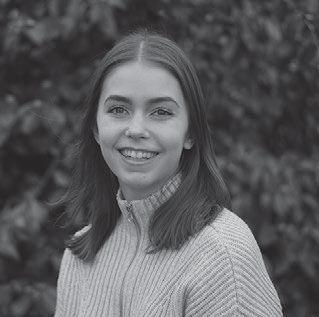
The next generation of Canadian agricultural leaders is growing, and CABEF is proud to support them. Congratulations to these exceptional students who have won $2,500 CABEF scholarships. Based on their applications, the future of the agriculture industry is in great hands.
CABEF awards seven $2,500 scholarships annually to students entering or currently pursuing an agricultural
at a
by April 30th , 2022

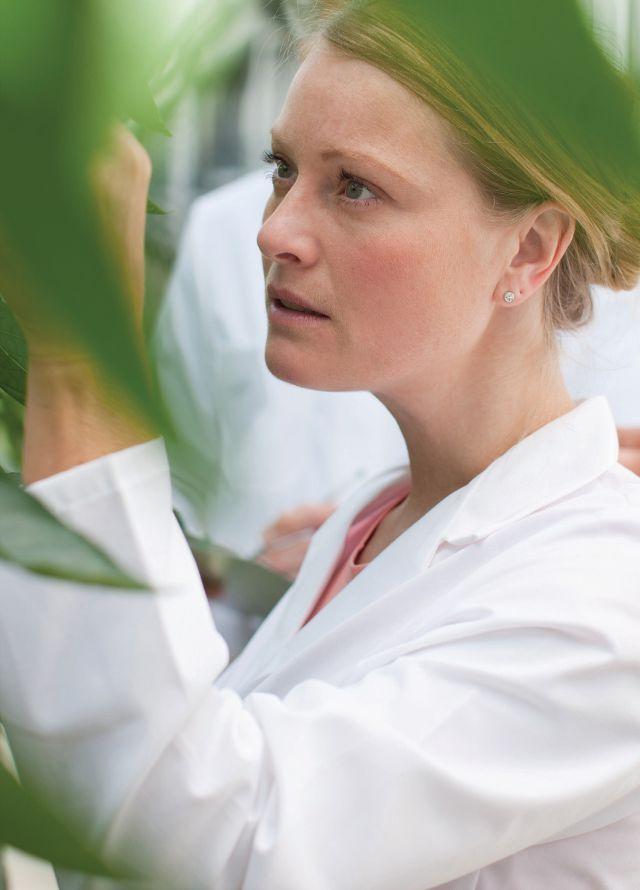
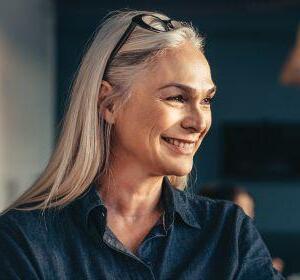
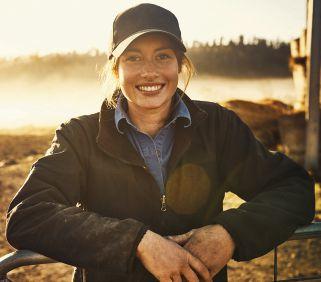
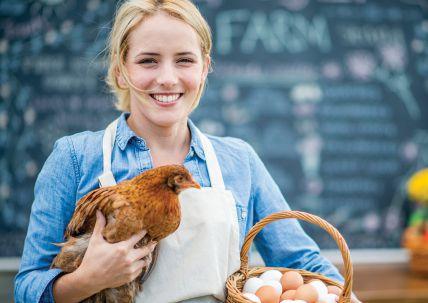
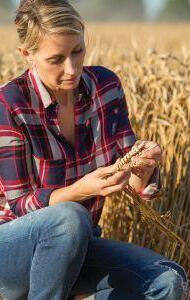
The incredible nominations we received for the the second year of this program highlighted just how
To our Top 7 recipients, those who nominated an influential woman, those who offered support through social media or tuning into the podcast series on AgAnnex Talks, and to our generous sponsors.



